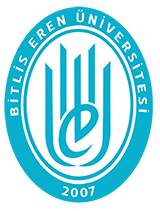DETERMINING ENVIRONMENTALLY FRIENDLY WORKING FLUID FOR AN EJECTOR ORGANIC RANKINE CYCLE USING A LOW-TEMPERATURE SOURCE
Abstract
This paper investigates the thermodynamic performance of various environmentally friendly fluids in an integrated organic Rankine cycle (ORC) and ejector booster refrigeration cycle (EBRC) system. The study aims to identify optimal working fluids that enhance system efficiency while minimizing environmental impact. Several natural and synthetic fluids, including those with low global warming potential (GWP) and zero ozone depletion potential (ODP), are analyzed for their thermodynamic properties such as coefficient of performance (COP), mass flow rate of cycle, expander expansion ratio (EER) and compressor compression ratio (CCR). Detailed thermodynamic analysis, including energy balances, is conducted for each fluid across the system components, assessing their effect on system performance. The results reveal that certain fluids offer significant improvements in both energy efficiency and environmental sustainability compared to other refrigerants. Based on the analyses, in the ORCEBRC cycle, cyclopentane was found to be fluid with the lowest total mass flow rate and the highest COP. This study provides valuable insights into the selection of sustainable working fluids for ORC-EBRC systems, offering guidance for future applications in renewable energy utilization and cooling technologies.
Collections

DSpace@BEU by Bitlis Eren University Institutional Repository is licensed under a Creative Commons Attribution-NonCommercial-NoDerivs 4.0 Unported License..













